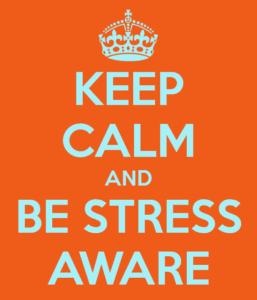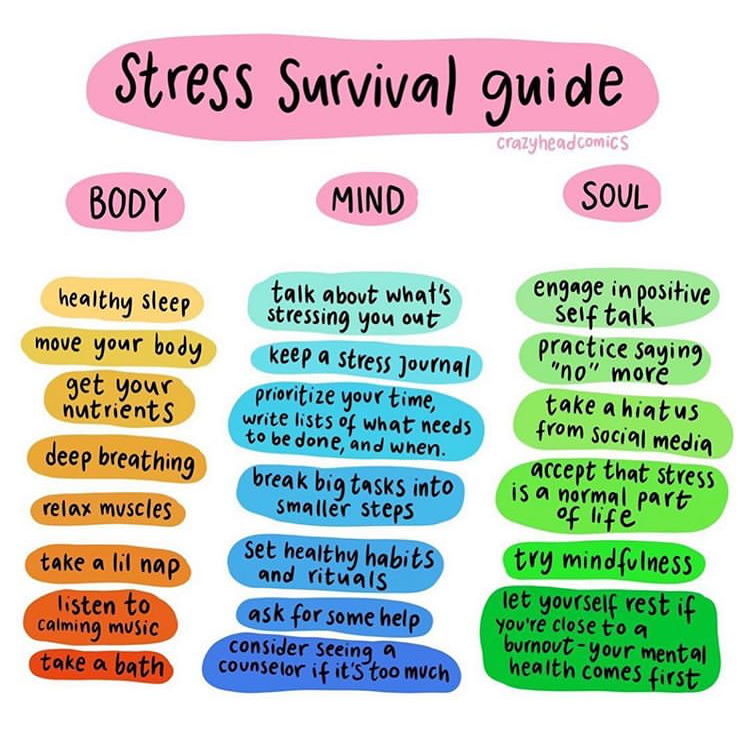
International Stress Awareness Week (November 1-5, 2021) aims to raise awareness about stress prevention and stress management. This is particularly important during the current Covid-19 pandemic, throughout which we have all had to adjust to a new, more restricted lifestyle and consequently new and challenging everyday stresses. As you juggle your career, family life, and other commitments, you might be feeling stressed out. Setting some time aside for yourself to unwind can help relieve stress and improve your physical and mental health.
Here are (7) ways to help relieve stress that anyone can do.
- Exercise
Working out regularly is one of the best ways to relieve stress and relax your mind.
Regular exercise can have a profoundly positive impact on depression, anxiety, and ADHD. It also relieves stress, improves memory, helps you sleep better, and boosts your overall mood. And you don’t have to be a fitness fanatic to reap the benefits. Do some resistance training (weights), swim laps, take a bike ride, jog, walk or play sports.
Remember, doing any exercise is better than doing nothing at all.
- Relax Your Muscles
When you’re stressed out, your muscles can get tense. Help to loosen them up by:
- Stretching
- Taking a hot bath or shower
- Getting a good night’s sleep
- Deep Breathing
Stopping to take a few deep breaths from time to time can really make a difference. Try it! You’ll be surprised how much better you feel.
- Sit in a comfortable position with your hands in your lap and your feet on the floor. Or you can lie down.
- Close your eyes.
- (Imagery) Imagine yourself in a relaxing place. It can be on the beach, in a beautiful field of grass, or anywhere that gives you a peaceful feeling.
- Slowly take deep breaths. Take a deep breath in through your nose and breathe out through pursed lips as if you were whistling.
- Do this breathing 3 to 10 times and take your time with each breath.
- Eat Well
Eating a regular, well-balanced diet will help you feel better in general but it can also help to control your moods. Make sure your meals are balanced with vegetables, fruit, whole grains, and lean protein for energy. Try your best not to skip meals, not only is that not good for you but it can put you in a bad mood, increasing your stress levels.
- Take a Break
Plan on some downtime for yourself to help relax your body and mind. Restful things might include:
- Meditation
- Yoga
- Tai chi
- Prayer
- Listening to your favorite music
- Spending time in nature

Matilda Heindow, “Crazy Head Comics”
- Make Time for Hobbies
Setting aside time for things that you enjoy can also relieve stress. Try to do something that makes you feel good. You don’t need a ton of time, 15 – 20 minutes will do, anything that can help you relax. Hobbies such as:
- Reading
- Knitting
- Playing golf
- Watching a movie
- Doing puzzles
- Play cards or board games
- Talk About Your Problems
If things are bothering you, take the time to talk about them. Talk to family members, a friend, a trusted clergyman, a physician, or a therapist.
Talking to a therapist about stress can also be a key part of addressing and reducing it in the long-term. Therapy can help address stress that occurs as a result of life events, such as: loss, divorce, or a life-altering medical diagnosis. A therapist can help a person explore ways to deal with possible workplace stress. Or, if an individual is stressed because of a family or relationship issue, couples or family therapy may help them resolve the issue helping to reduce the stress for everyone involved. A therapist or counselor can help you learn to manage stress in ways that improve your health and longevity.
If you find yourself struggling with stress, anxiety, depression or drug/alcohol use, it’s important to remember… You’re not alone!
Many people have similar experiences at some point in their lives. When experiences are severe, some people need to reach out for professional help and treatment. If you’re feeling stressed out, call (716) 886-8200 to speak with a behavioral health professional.



Comments are closed